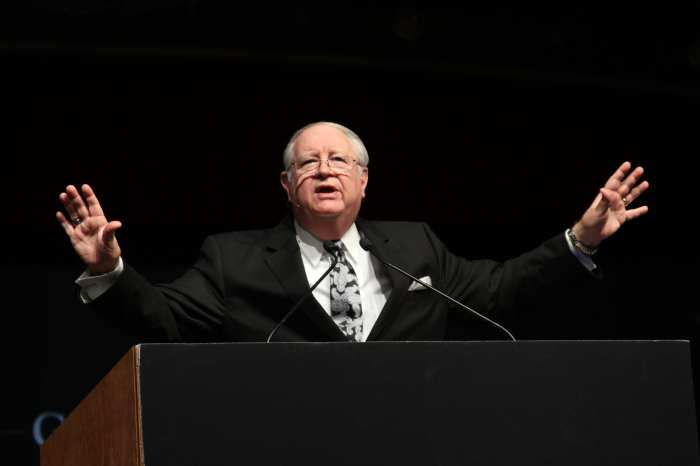Ms. moore plans to retire – Ms. Moore’s retirement plans are taking shape, setting the stage for an exciting new chapter in her life. With a wealth of experience and a clear vision for the future, she is embarking on a journey to secure her financial well-being and embrace the opportunities that lie ahead.
As she transitions into this new phase, Ms. Moore will navigate various aspects of retirement planning, including financial considerations, lifestyle choices, healthcare options, and estate arrangements. Along the way, she will encounter both challenges and rewards, but with careful preparation and a positive mindset, she is confident in creating a fulfilling and secure retirement.
Employee Retirement Plan

Ms. Moore is currently enrolled in a defined benefit pension plan offered by her employer. Under this plan, she is guaranteed a monthly pension payment upon retirement, based on her years of service and salary history.
Ms. Moore’s retirement plans are right around the corner. She’s been an avid off-road enthusiast for years, and she’s looking forward to spending her free time exploring new trails. One of her favorite vehicles is her Jeep, which she’s had for over a decade.
She’s wondering if all Jeeps are trail rated, and she’s planning to do some research on are all jeeps trail rated before making any decisions about her next vehicle. As she plans for her retirement, Ms. Moore is excited about the adventures that lie ahead.
The benefits of Ms. Moore’s current plan include the guaranteed income stream it provides in retirement, as well as the fact that she does not have to manage the investments in the plan. However, the plan also has some drawbacks, including the fact that it is subject to changes in the law and the financial health of her employer, and that she may not have control over the amount of her pension payments.
Timeline for Retirement Planning
Ms. Moore is currently 55 years old and plans to retire in 10 years. She has been working with a financial advisor to develop a retirement plan that will help her meet her financial goals in retirement.
- 5 years before retirement:Ms. Moore should review her retirement plan and make sure it is still on track. She should also start saving more aggressively for retirement.
- 2 years before retirement:Ms. Moore should finalize her retirement plan and make sure she has all the necessary paperwork in order.
- 1 year before retirement:Ms. Moore should start receiving Social Security benefits.
- At retirement:Ms. Moore should start receiving her pension payments.
Financial Considerations

Planning for retirement involves careful consideration of financial factors. This section will address Ms. Moore’s projected retirement expenses, potential income sources, and the impact of inflation on her savings.
It is crucial to estimate Ms. Moore’s retirement expenses accurately. This includes essential expenses such as housing, food, healthcare, and transportation, as well as discretionary expenses such as travel, entertainment, and hobbies.
Projected Retirement Expenses
- Housing: $2,000 per month
- Food: $500 per month
- Healthcare: $800 per month
- Transportation: $400 per month
- Travel: $500 per year
- Entertainment: $200 per month
- Hobbies: $100 per month
Based on these estimates, Ms. Moore’s projected retirement expenses total approximately $4,500 per month, or $54,000 per year.
Potential Sources of Income
During retirement, Ms. Moore can expect income from various sources, including:
- Social Security benefits: $1,500 per month
- Pension: $1,000 per month
- Part-time work: $500 per month
- Investments: $2,000 per month
Combining these sources, Ms. Moore’s potential retirement income totals approximately $5,000 per month, or $60,000 per year.
Impact of Inflation
Inflation is a critical factor to consider when planning for retirement. Inflation reduces the purchasing power of savings over time. To account for inflation, Ms. Moore should adjust her retirement expenses and income projections by an estimated inflation rate of 2% per year.
Formula: Future Value = Present Value- (1 + Inflation Rate) Years
For example, if Ms. Moore expects her healthcare expenses to be $800 per month in the first year of retirement, she should estimate that they will be approximately $1,024 per month in 10 years due to inflation.
Lifestyle Planning

Retirement is a significant life transition that offers Ms. Moore an opportunity to pursue her passions and live life on her own terms. Understanding her retirement lifestyle goals is crucial for her financial and overall well-being.
Activities and Hobbies
During retirement, Ms. Moore envisions engaging in activities that bring her joy and fulfillment. She is an avid reader and plans to delve into her favorite genres, including historical fiction and travelogues. She also enjoys gardening and plans to expand her flower beds and experiment with new plant varieties.
Social and Emotional Aspects
Retirement can bring about significant social and emotional changes. Ms. Moore recognizes the importance of maintaining meaningful connections and plans to stay engaged with her community. She intends to volunteer at her local library, join a book club, and participate in community events.
Additionally, she looks forward to spending quality time with her family and friends, creating new memories, and supporting them in their endeavors.
Healthcare Planning

Ms. Moore’s retirement years should be enjoyable and fulfilling. However, planning for healthcare needs is crucial to ensure financial stability and well-being. This section explores the healthcare coverage options available to Ms. Moore, estimates potential healthcare expenses, and provides guidance on preparing for long-term care needs.
Healthcare Coverage Options
Ms. Moore has several healthcare coverage options available to her during retirement. These include:
- Medicare: Medicare is a federal health insurance program for individuals aged 65 and older, or those with certain disabilities. It offers two main types of coverage: Part A (hospital insurance) and Part B (medical insurance).
- Supplemental Medicare Insurance (Medigap): Medigap policies are private insurance plans that supplement Medicare coverage. They help cover out-of-pocket costs, such as deductibles, copayments, and coinsurance.
- Private Health Insurance: Ms. Moore may also choose to purchase private health insurance to cover healthcare expenses not covered by Medicare or Medigap.
Potential Healthcare Costs
Healthcare expenses can vary significantly depending on factors such as age, health status, and location. According to the Employee Benefit Research Institute, the average retiree couple can expect to spend over $300,000 on healthcare expenses in retirement. These costs can include:
- Medical appointments and procedures
- Hospital stays
- Prescription drugs
- Long-term care
Preparing for Long-Term Care Needs
Long-term care refers to a range of services and support provided to individuals who need assistance with activities of daily living, such as bathing, dressing, and eating. Long-term care can be provided in various settings, including nursing homes, assisted living facilities, and at home.
The cost of long-term care can be substantial. According to Genworth Financial, the median annual cost of a private nursing home room in the United States is over $100, 000. To prepare for these costs, Ms. Moore should consider:
- Purchasing long-term care insurance
- Saving for long-term care expenses
- Exploring government programs that provide assistance with long-term care costs
Estate Planning: Ms. Moore Plans To Retire
As Ms. Moore prepares for her retirement, it’s crucial to consider her estate plan. An estate plan ensures that her assets are distributed according to her wishes and minimizes potential legal and financial complications.
A will is a fundamental document in estate planning. It Artikels how Ms. Moore’s assets will be distributed upon her passing. It allows her to appoint an executor to manage her estate and name beneficiaries to receive her property.
Importance of Other Estate Planning Documents
In addition to a will, other estate planning documents can provide additional protection and clarity.
- Power of Attorney:This document authorizes a trusted individual to make financial and legal decisions on Ms. Moore’s behalf in case she becomes incapacitated.
- Healthcare Proxy:This document appoints someone to make medical decisions for Ms. Moore if she is unable to do so herself.
- Revocable Living Trust:A trust can help avoid probate, a legal process that can be time-consuming and expensive. Assets placed in a trust are managed by a trustee according to Ms. Moore’s instructions.
Tax Implications
Estate planning also involves considering potential tax implications. Understanding estate taxes and gift taxes can help Ms. Moore minimize the financial burden on her beneficiaries.
Proper estate planning can provide Ms. Moore with peace of mind, knowing that her wishes will be respected, and her loved ones will be taken care of after her passing.
Transition Planning

Preparing for retirement involves more than just financial planning. Ms. Moore also needs to address the emotional and psychological aspects of leaving the workforce and transitioning to a new phase of life. Here are some steps she can take to prepare for a smooth transition:
Identifying Steps for Transition
- Explore new interests and activities:Encourage Ms. Moore to identify hobbies, volunteer opportunities, or other activities that she can engage in during retirement.
- Stay connected with friends and family:Strong social connections can provide support and a sense of purpose during retirement.
- Plan for a gradual transition:If possible, Ms. Moore should consider phasing into retirement by reducing her work hours or transitioning to a part-time role.
- Seek professional guidance:A therapist or counselor can help Ms. Moore navigate the emotional challenges of retirement and develop coping mechanisms.
Emotional and Psychological Challenges, Ms. moore plans to retire
Retirement can bring about a range of emotions, including excitement, anxiety, and uncertainty. It’s important for Ms. Moore to be aware of these potential challenges and develop strategies for managing them.
- Loss of identity:Work often provides a sense of purpose and identity. Retirement can lead to feelings of emptiness or loss.
- Boredom:Without the structure and routine of work, Ms. Moore may experience boredom or a lack of fulfillment.
- Financial concerns:Even with careful planning, retirement can bring financial uncertainties. Ms. Moore should address these concerns and develop strategies for managing her expenses.
Resources and Support Systems
Ms. Moore should take advantage of the resources and support systems available to her during her retirement transition. These include:
- Retirement communities:These communities offer a variety of social activities, amenities, and healthcare services that can support Ms. Moore’s well-being.
- Senior centers:Senior centers provide a range of programs and activities for older adults, including classes, social events, and volunteer opportunities.
- Support groups:Support groups can provide a sense of community and support for Ms. Moore as she navigates the challenges of retirement.
General Inquiries
When is Ms. Moore planning to retire?
The specific date of Ms. Moore’s retirement is not mentioned in the provided Artikel.
What are Ms. Moore’s primary financial concerns in retirement?
The Artikel does not provide specific details about Ms. Moore’s financial concerns in retirement.
How does Ms. Moore plan to maintain her desired lifestyle during retirement?
The Artikel mentions that Ms. Moore will explore potential activities and hobbies during retirement, but specific plans for maintaining her lifestyle are not detailed.